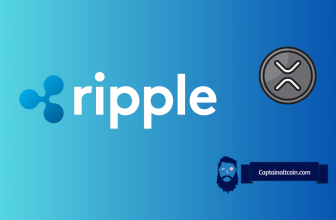
Many people have high hopes for legitimizing decentralized finance through regulation. While that may be a possible outcome, the industry will need a native set of rules. Applying the same rules banks and institutions have to play by won’t do much good, given the alarming number of bank governance failings.
What you'll learn 👉
Bank Regulation Is Insufficient
Developing an ecosystem of rules and guidelines for financial institutions is tricky. There are so many different factors to consider, yet it seems there are never enough rules to cover everything. That situation will not change overnight either, as many institutions feel there is too much red tape to cut through already. Moreover, one cannot argue the current regulations offer a sense of security, even if they fail at preventing wrongdoings.
A recent report by Fitch Ratings confirms things are not looking too great for banks. More specifically, the group analyzed over 1,500 reports on banks between 2020 and Q2 2022. It is a very brief period, but one that has alarming results. The reports, tagged as financial crime, governance, regulatory issues, or institutional scandals, paint a very troublesome picture of the finance industry. Per the findings, these are the most common forms of financial misconduct among institutions:
- Regulatory Fines (various violations, nearly 20% of reports)
- Fraud (almost 6% of reports)
- Allegations against employees/managers (roughly 5% of reports)
- Money laundering (approximately 5% of reports)
- Weak Controls (approximately 4.5% of reports)
One would think the current strict regulations would prevent those wrongdoings. Unfortunately, that is clearly not the case. It only confirms how rules and guidelines are “guiding tools” but enforcing them is a different matter. Moreover, banks dealing with these governance failings often pay a fine, but their services are not affected. If anything, most institutions make more money from violations than they pay in fines, making the whole system somewhat moot.
Looking at the FCA’s website, the amounts fined are small. For example, even a $13 million fine against Citigroup Global Markets would make no real difference if the company earned over $2 billion during its period of violations. Most institutions pay far less in fines, regardless of the severity of the crime. Something needs to change, and applying this “slap-on-the-wrist” mentality to decentralized finance wouldn’t help legitimize the industry in the slightest.
DeFi Needs Stricter Rules
Decentralized finance is a very different creature compared to TradFi. There is a much higher risk factor involved, and the current regulation – which doesn’t prevent banks from stepping out of line – wouldn’t offer much protection in a DeFi environment either. The decentralized nature of DeFi warrants a very different – and perhaps stricter – approach to protect users and ensure their funds are safe.
It may take a while for proper regulation to be drafted for decentralized finance projects. However, that isn’t necessarily bad, as it is paramount to do it correctly from day one. Some developers and policymakers may argue decentralization and rules are mutually exclusive. That is an idyllic mindset, as projects like Phree have found a way to combine the best of both and introduce a regulatory framework at the protocol level.
Rather than thinking of regulation as an “afterthought,” it should be the default approach in decentralized finance. There is no reason for developers to try and deal with other people’s money without applying for the necessary approval, licensing, or guidance. But unfortunately, that is not the industry norm today. Phree, with its compliant environment, enables DeFi to become regulatory compliant without friction.
However, that approach also introduces a much-needed new opportunity. TradFi organizations can build DeFi solutions through this compliant ecosystem without stepping out of line. The team dubs this “reverse decentralization,” although the approach may bring tremendous liquidity to decentralized finance. More importantly, it is a viable way of addressing structural shortcomings, including risk controls, KYC/AML, price manipulation, etc.
There Is Still Much Work To Do
It is safe to say both TradFi and DeFi have their work cut out on the regulatory front. Traditional banks and organizations need to step up their game and operate without predetermined boundaries at all times. Failure to do so should be met with more severe punishment, as these laughable fines are often applied after the damage has been done. A proactive approach can help avoid most wrongdoings.
A similar mindset applies to decentralized finance, even if it has no official regulatory framework as of yet. Enforcing compliance at the protocol level is the play, even if it may take a while for developers and builders to go down this route. Regulation will prove necessary if this industry is to go mainstream, and there is no real point in opposing it any longer. However, only if the rules don’t stifle growth and innovation.






